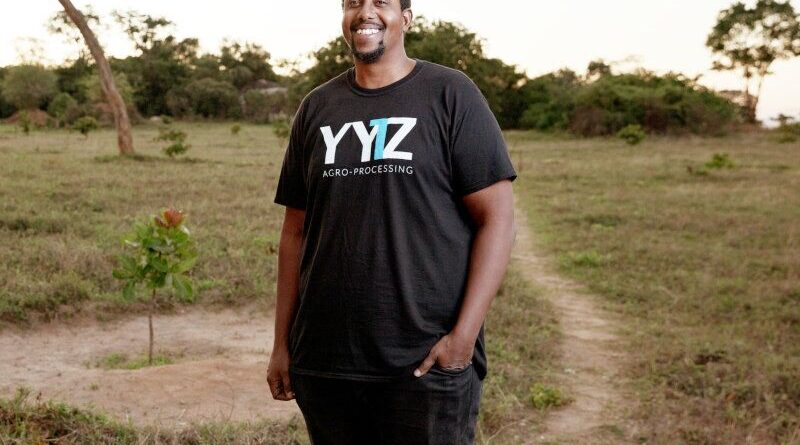Three entrepreneurs open up Tanzania’s agricultural business opportunities
Fahad Awadh, founder of YYTZ Agro-processing
We take a look at three entrepreneurs who are taking advantage of Tanzania’s agribusiness, from processing cashews for export and growing apples to building chicken coops.
1. A merchant who brings cashew products home to Africa
Fahad Awadh is the founder of YYTZ Agro-Processing, an export-oriented cashew producer in Tanzania. Despite being one of the world’s largest cashew farmers, Tanzania exports 90% of its cashews in the raw form. Awadh saw an opportunity to change this: by keeping cashew operations in Africa and selling to some of the world’s largest consumer markets.
Awadh made several research trips to Vietnam, where more than 70% of the world’s cashews are processed, to learn the best production methods. “That’s where I saw a lot of machines and I realized that if we want to do this, we have to invest in machines. We had to work as well as them because they are the ones we would be competing with,” he says.
In Zanzibar, YYTZ processes cashews by peeling, roasting and flavoring them with a machine equipped with cameras and optical vision to sort the cashews by color and size.
Cashews are flavored with local ingredients and Zanzibar sea salt, offered roasted or unroasted, and wrapped in green or turquoise, representing the rich land and sea that the ingredients come from. it. YYTZ sells its ‘More than Cashews’ brand online and in stores across East Africa, Europe and North America.
Read our full interview with Fahad Awadh: Cashew nut entrepreneur sets up local operations for export-led business
2. A German businessman sees opportunities in the Tanzanian apple market
Although fruits such as pineapples, bananas and mangoes thrive in the near-equatorial regions of Africa, apples are generally not suited to the climate, preferring cooler conditions. However, German-born entrepreneur David Runge saw a unique opportunity for apple farming in East Africa. He invested in Tamu Tamu Tanzania, which describes itself as the region’s first commercial apple farm, located 540 kilometers west of Dar es Salaam. The company has invested heavily in research and development to grow apple varieties that can thrive in equatorial climates.
The apple farm was started in 2016 by two young entrepreneurs who did the first R&D to find apple varieties suitable for these conditions. Runge’s current business partner, Peter Schuurs – a family friend – was the first to recognize the farm’s potential and introduced Runge to the opportunity.
Intrigued, Runge did his research and found a strong demand for apples in the East African market. “I made my own defense. Yes [whether] if it is Kenya, Uganda or Tanzania, at every bus stop, in traffic, people would sell apples. In every supermarket you would find apples. And they sell here for half a dollar a piece. It’s a lot of money,” he explains.
Despite this demand, many apples in the region are exported, and Runge saw an opportunity to offer locally grown produce to the market.
Watch our full interview with David Runge: Why this German invested in Tanzania’s first commercial apple farm
3. Building a poultry business network in Tanzania
Entrepreneur Ann-Elizabeth Swai founded AKM Glitters, a franchised chicken business in Tanzania. Instead of selling chicken meat and eggs directly to consumers, Swai’s company provides franchisees, or “brooder enterprises” as AKM Glitters calls them, with equipment and technical support. required to run independent poultry operations.
Based in Dar es Salaam, AKM Glitters equips these traders – usually small farmers – with a complete package that includes chicks, feed, vaccines, medicines, drinks, feeders and manuals. The company also provides training and extension services. Franchisees raise the chicks for about four weeks, after which they sell them at a profit of 20-30%.
Swai’s journey into raising chickens began during his work at the United Nations, where he started buying chickens from nearby villages and rearing them in his backyard, selling eggs and chickens. living for meat. In 2006, he retired early and invested his money to focus on AKM Glitters full time.
Read our full interview with Ann-Elizabeth Swai: A new model for Tanzania’s poultry business
Related articles
#entrepreneurs #open #Tanzanias #agricultural #business #opportunities
